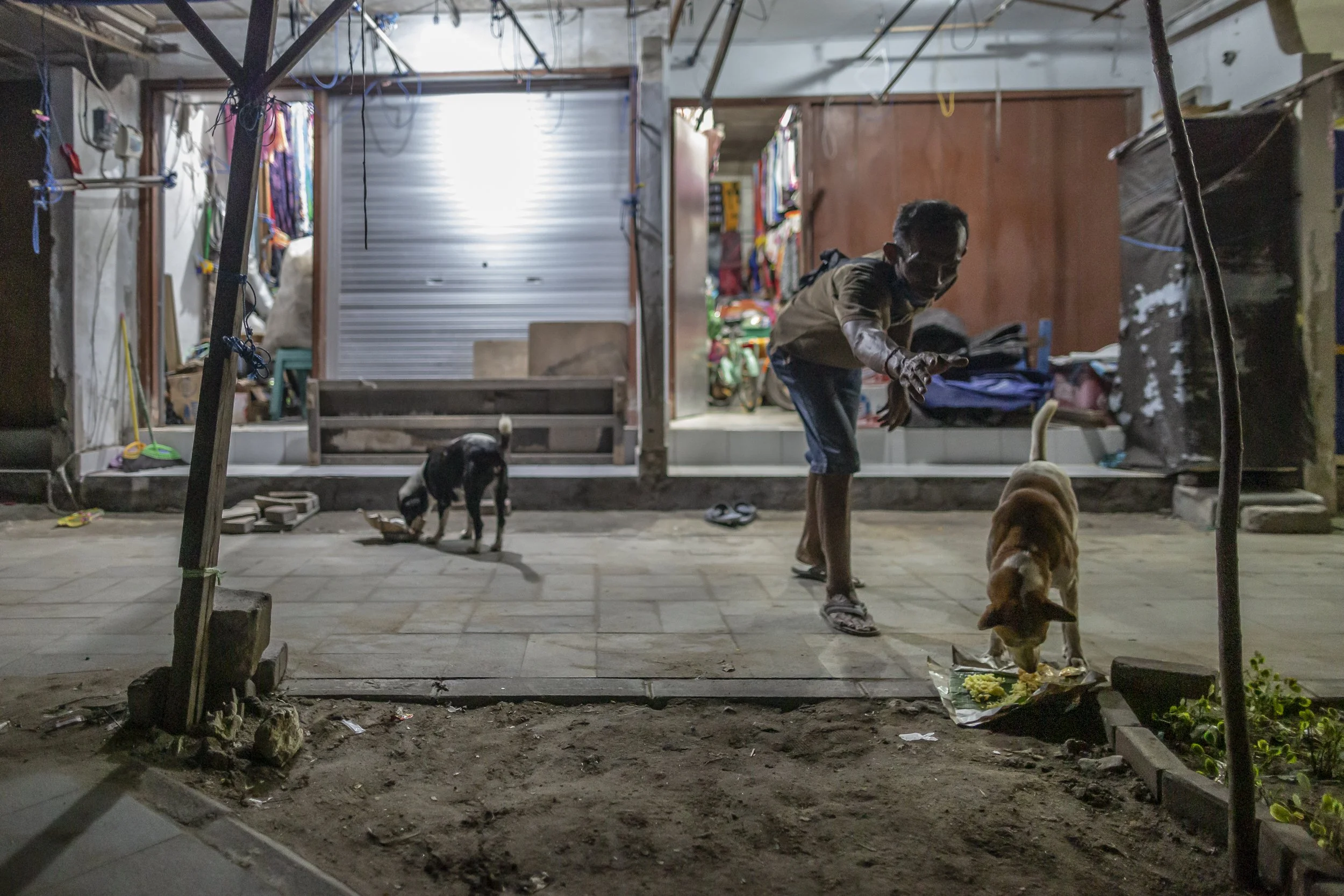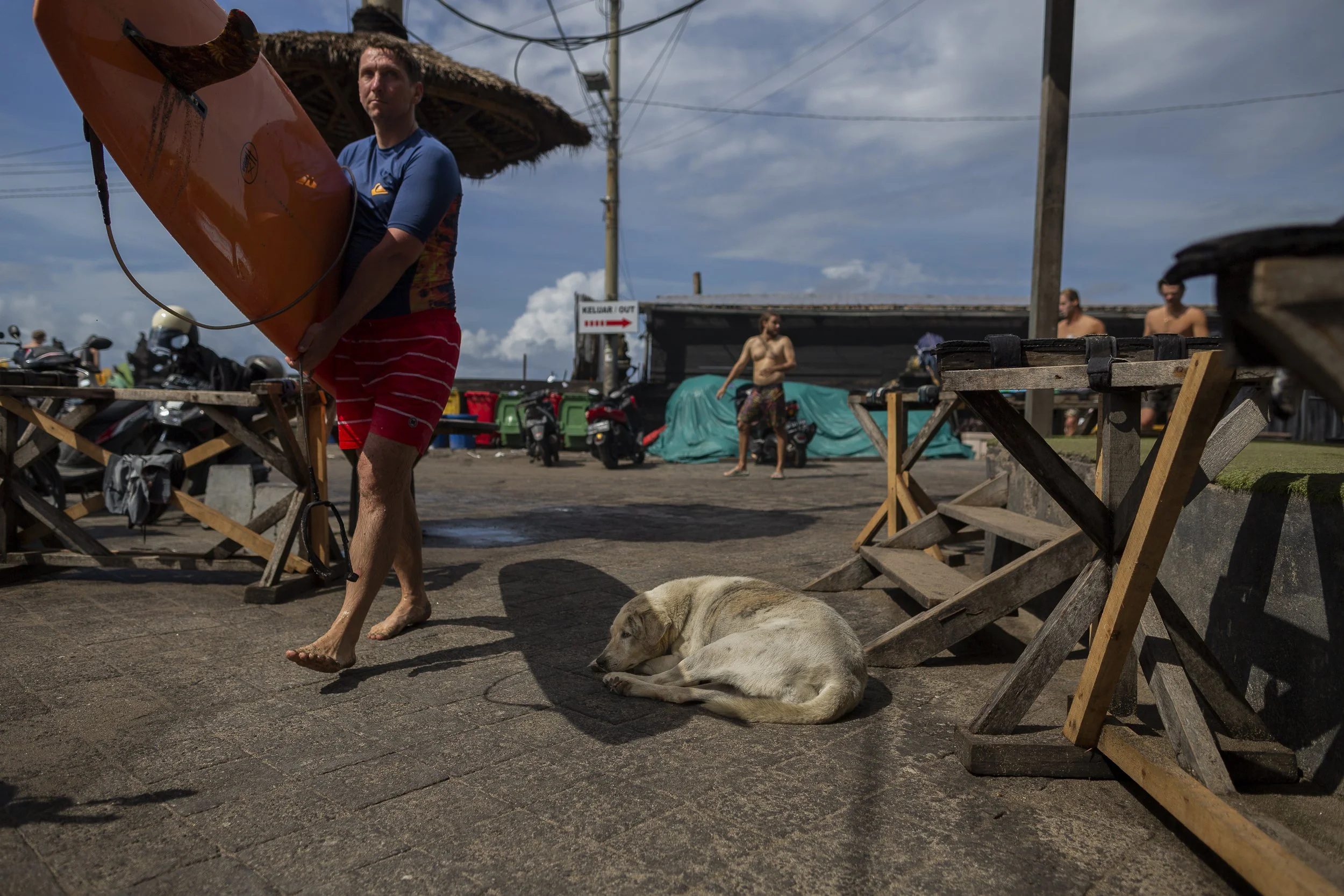Dog Balination
The story below includes a sensitive content from sacrificial ceremonies.
Тhis story began after watching a documentary about an island of dogs. After researching and looking for answers, I found that barely anything was published about this extraordinary breed - Bali Dog or sacrificial ceremonies, which increased my curiosity. Not many locals of the island of Bali are aware of having an indigenous breed.
Bali has two unique indigenous dogs: the Bali Dog and the highland Kintamani, which have lived virtually unaltered on the island for at least 5,000 years. Рesearch shows that we can trace back the ancestry of the Bali Dog about 15,000 years.
This very important pure Bali dog breed has been under threat for a few decades now, with a shocking and disturbing reduction in population each year. Not long ago, when importing breed dogs was banned in Bali, before rabies and dog meat traders, urban sprawl, indiscriminate sterilization programs, and interbreeding took place, only the pure Bali dog inhabited the island. The possibility that these remaining pure indigenous dogs can carry the DNA forward is nearly impossible without conservation. The chances of a male unsterilized pure Bali dog finding and mating with a female unsterilized pure Bali dog are very low.
The gennes can reveal much about dogs' early evolution and the early migration patterns of humans and their canine companions through Asia and Southeast Asia.
A little background about sacrificial ceremonies:
In Sanskrit, Bali means "offering" and can involve animal or plant offerings, each serving as an essential element in sacrificial rituals. Particularly in Shaktism—where the feminine divine, represented by goddesses like Kamakhya, Kali, and Durga, is venerated—animal sacrifices are performed to honor the Devi Shakti in her various forms. According to the Manawa Dharmasastra, animals sacrificed in these rites are believed to reincarnate at a higher level, and those who offer them are likewise thought to attain a higher spiritual standing.
In Balinese Hinduism, the Mecaru ceremony is integral to maintaining harmony between humans and nature. This ritual aims to appease and acknowledge spirits that dwell in nature, often seen at places like tall trees, village crossroads, or bridges. The Rsi Gana ceremony, part of Mecaru, requires the sacrifice of a unique animal—the Bungkem, a red-furred, black-mouthed dog, which is highly regarded in these offerings. The Balinese believe that animals used in these ceremonies are spiritually purified and elevated in the cycle of reincarnation due to their sacrificial role in ceremonial purity and devotion.
This cultural tradition reflects a complex view of life, death, and reincarnation, seeing sacrifice as a means of achieving balance and advancing both the spirits of animals and those of humans involved in the ritual.
This story is a journey through a mystically-layered process and sacrifice witnessed during a highly spiritual week-long sacrament I call, Dog Balination, with more yet to unfold..

































